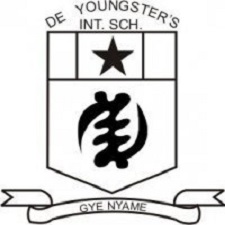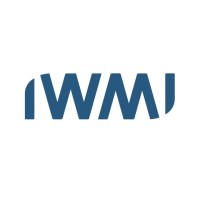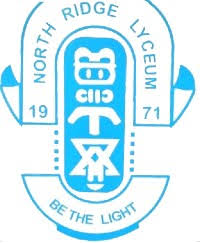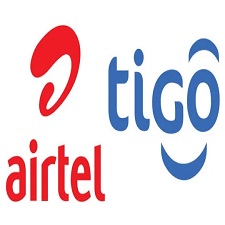Job Vacancy at UNICEF Ghana for International Consultant – Senior Gender Expert
UNICEF works in some of the world’s toughest places, to reach the world’s most disadvantaged children. To save their lives. To defend their rights. To help them fulfill their potential.
Across 190 countries and territories, we work for every child, everywhere, every day, to build a better world for everyone.
And we never give up.
For every child, Strength
Background
The promotion of gender equality and the empowerment of women and girls is central to UNICEF’s mandate and its focus on equity. In order to achieve the results for children that UNICEF sets forth in pursuing its mandate and to realize the rights of every child, especially the disadvantaged, it is essential to address one of the most fundamental inequalities that exist in all societies – gender inequality. A broad range of evidence shows that gender, poverty and geographic residence are three of the strongest factors determining disparities in child well-being and rights. As the only United Nations agency with the rights of children at the heart of its mandate, UNICEF is in a position to foster gender-equitable child outcomes as a catalyst to a more equitable world not only today, but also in the long term, by redefining gender roles and power relations for the men and women of tomorrow.
(adsbygoogle = window.adsbygoogle || []).push({});
UNICEF’s Gender Action Plan (GAP) 2018-2021 guides the organization’s promotion of gender equality throughout its work. The GAP elaborates the 13 gender programmatic results across the five goals of the UNICEF Strategic Plan 2018 - 2021. Eight results focus on integrating gender across sectoral programming, under two themes: gender equality in outcomes for boys and girls and in care and support for women and children. Five results focus on the empowerment and wellbeing of adolescent girls, through ending child marriage and early unions, promoting gender-responsive adolescent health, advancing girls’ secondary education, and addressing gender-based violence in emergencies
Syria ranks 150th of 153 countries on the 2020 Global Gender Gap Index which measures gender-based disparities in economic participation, education attainment, health and political empowerment. This represents a significant decline from the position it occupied in 2010 (111th position). The war, significant decrease of Syria’s GDP in 2016 by 63% and its consequences on the population has prevented Syria from advancing progress in achieving gender parity.
Nine years of conflict have had a devastating impact on Syria’s economy and social fabric. The conflict has increased regional inequalities and led to a war economy. The loss of jobs and assets as a result of the protracted conflict, disruption of social services and downscaling of social spending, in particular the reduction in subsidies as a result of declining government revenues, and spiking inflation combined with the widespread violence in the country have led to an unprecedented increase in poverty rates. Today, over 80% of the population live below the poverty line, with 69% below the extreme poverty line, and 35% in abject poverty – that is, they are unable to meet their basic needs for survival. In 2018, the number of people in need under the Early Recovery and Livelihoods Sector is estimated to stand around 13 million, with 9.8 million in acute need.
(adsbygoogle = window.adsbygoogle || []).push({});
In situations of protracted crisis, women and girls shoulder additional burdens as they take care of their families and undertake various forms of income-generating work while, at the same time, facing a lack of basic services and exposure to violence and harmful practices being used as negative coping mechanisms, such as early marriage. Syria ranks 165th of 167 countries on the Global Women, Peace and Security Index, which reflects women’s equality, well-being and empowerment in households, communities and society. Hence Syrian women are amongst the most underprivileged and marginalized globally and thus UN programmes must include a major focus on gender equality and empowering women in the economic, political, and social spheres. Young women and girls are particularly vulnerable as a result of the prolonged crisis, with increasing a reported exposure to child marriage (assessments conducted in 2018 found a rate of 45 per cent vs a pre-crisis level of 8.3 per cent of girls married before age 18). COVID-19 lock-down and economic pressures have also exacerbated previous gender norms, roles and responsibilities where female domestic and caring responsibilities performed inside the home increased.
This demonstrates that gender transformative programming must focus on changing social norms and prioritize female headed households, ensuring their full participation and contribution to peace, stability, resilience and socio-economic recovery.
Syria Country Office (SCO) has made investment in empowerment of adolescents’ girls and address gender issues through different programing efforts, it is critical and timely to undertake a comprehensive review to come up with concrete strategic and programme recommendations and address them in the implementation of the Country Programme both for a better integration of gender equality in the programming efforts and for strengthened results for adolescent girls through specific relevant GAP priority areas.
How can you make a difference?
Objectives Of The Consultancy
UNICEF intends to recruit a senior gender expert to provide technical assistance to the programme and field teams in the SCO and identify the gaps and opportunities in gender integration across all sectors and joint work of UNICEF Syria Country Office, develop recommendations to inform better gender programming in the alignment with GAP 2.0 and provide technical assistance for .
The expert reports to the Deputy Representative Programme for general guidance and direction and is responsible for working and coordination with the gender focal point, Chief of Field Operations, Chiefs of Sections and Chiefs of Field Offices.
Main Objectives Of The Assignment Is The Following
-
- Review the 13 GAP results considering country context, complexity and prioritise and recommend a subset of these results for inclusion in the Country Programme, based on national relevance and priorities, CO’s on-going work and available financial and human resources.
- Identify and review the extent to which various sectors/ priority areas in the Country Programme is achieving results related to gender equality and present recommendations on how to improve related performance, and sectoral gender integration.
- Review and guide the programmatic contributions by UNICEF in the UNICEF Programme, UN Joint Programmes and coordinated initiatives addressing gender equality in Syria and identify UNICEF’s comparative advantage, gaps and opportunities and provide technical support for strengthening the gender component in UNICEF work.
- Provide technical leadership, advisory support and assistance for the integration of gender equality and development of harmonized, gender-transformative programme interventions into Syria country programming for impact and scale, in alignment with the GAP and the Syria Country Office priorities.
- Build and strengthen partnerships, networks and strategic alliances in the integration of gender equality and development of harmonized, gender-transformative programme interventions.
- Support Innovation, knowledge management, capacity building and documentation of best practices
LOCATION:
Estimated On-site working days: 2 months
Estimated Off-site working days: 3 months
Estimated Field Missions/Travel: 1 month
Duration
Estimated Start Date: 25 January 2021
Estimated End Date: 25 July 2021
The selected consultant will work for the period of 6 months (25 January 2021- 25 July 2021). It is envisaged: 3 months’ out of county and 3 months in the country. The exact schedule of the activities will be agreed with the consultant based on the consultancy implementation progress. The deadline for submission of final deliverables to UNICEF is 25 July 2021.
SUPERVISOR: The consultant will be supervised and report to the UNICEF Deputy Representative Programme. The consultant will work on daily basis with UNICEF programme team.
Methodology
DESCRIPTION OF ASSIGNMENT:
Guided by the Gender Programmatic Review tool and working closely with the gender specialist, the consultant will conduct a desk review of key country documents, UNICEF programme documents and guidance. In addition, the consultant will consult and conduct key informant interviews with UNICEF staff in the country office and at the governorate and field levels; relevant UN agencies, relevant ministries as appropriate, Civil Society Organisation (CSO) partners and children in particular adolescents, including young people with disabilities and their organisations, with a view to mapping gaps and opportunities in existing programmes, partnership and approaches and identifying opportunities for strengthening UNICEF gender equality programming
A visit of at least one month is anticipated for the consultant to conduct face to face interviews with partners and UNICEF staff. However, this can be revised based on the COVID – 19 situation and in discussion with UNICEF management to substitute the face to face meeting with online engagements and virtual interviews.
(adsbygoogle = window.adsbygoogle || []).push({});
Activities And Tasks
The gender programmatic review and guidance process will include the following activities and tasks:
-
- The first step will involve a desk review of key documents and the submission of a short Inception Report that includes methodology, timelines and guiding questionnaires where needed. (The desk review will in essence provide background and evidence for Steps 1 and 2 of the Specific Objectives).
- Conduct UNICEF and stakeholder consultations to clearly identify gaps and opportunities including interviews/focus group discussions with CO management; key programme staff, CSOs/organizations, Government counterparts, UN agencies, key donors and where appropriate with adolescents, youth and those with disabilities.
- Discussions with UNICEF sections to map gender related activities and have an in-depth discussion on the areas selected for the analysis, focusing on the work related to achieving gender results
- Discussions and interviews with relevant UN partners on Joint Programmes, reviewing the contributions and comparative advantage and opportunities for UNICEF.
- Write up and submission of a draft GPR report for initial review by CO team and Regional Gender Advisor.
- Conduct a one-day validation workshop with UNICEF and partners to present the draft GPR report and recommended CO priority results to build common understanding and consensus.
- Submission of the final Gender Programmatic Review Report incorporating feedback from staff; and presentation that includes executive summary, methodology, in depth analysis findings, recommended gender priorities and/or programme approaches.
- Guide, follow up and monitor the implementation of the recommendations with continuous support to set up strategies, mechanisms and address challenges until the system is in place and functioning.
- Provide technical leadership and support to programme development for the integration of gender into Syria country programming based on the recommendation of the review, including through the planning, monitoring, evaluation and implementation.
- In collaboration with sectoral colleagues and senior management, identify and the areas of focus for gender programming with the greatest potential for impact and scale based on the recommendations, in alignment with the GAP and the country/regional priorities.
- Work with sectoral counterparts and senior management to incorporate sound gender indicators and measures in programme/project and policy initiatives, proposals, and advocacy efforts
- Provide technical leadership, advisory support and assistance for the integration of gender equality and development of harmonized, gender-transformative programme interventions into Syria country programming
- Support building and maintenance of internal and external partnerships, networks and strategic alliances in the integration of gender equality and development of harmonized, gender-transformative programme interventions.
- Support Innovation, knowledge management and capacity building and documentation in gender programming and lessons learned, and share best practices in gender programming and measurement to the management and SCO team.
Deliverables
-
- Desk review and submission of Inception Report –approximately 7-8 pages including methodology, timelines and guiding questionnaires where needed.
- Field visits, consultations with UNICEF and stakeholder engagements (In-depth interviews and focus group discussions), and discussions with country teams to agree on programmatic and GAP priorities for integration into country programme and sectoral engagements.
- Interviews and in-depth discussions with UN and donor partners, review the participation of UNICEF in various programmes.
- Submission of GPR findings in a draft report
- Guidance, follow up and adjustments provided during the implementation of the recommendations
- Required strategies and mechanisms to address and monitor the consideration of gender in UNICEF programme across sectors and areas of focus are in place.
- Technical leadership and support to programme development for the integration of gender into Syria country programming provided at all phases of the Syria country programme components.
- Areas of focus for gender programming with the greatest potential for impact and scale identified.
- Gender indicators and measures incorporated in programme and policy initiatives, proposals, and advocacy efforts
- Internal and external partnerships, networks and strategic alliances built and strengthened in the integration of gender equality and development of harmonized, gender-transformative progmme interventions.
- Innovation, knowledge management and capacity building and documentation introduced and provided in gender programming and lessons learned, and best practices in gender programming and measurement shared with the management and SCO team.
- Final and progress reports of Gender Programmatic Review endorsed and recommendations and progress in implementation is submitted.
- Monthly reports on the progress of work submitted
Reporting Requirements
Monthly report on the progress of tasks, outputs and deliverables.
End of mission report.
Payment Schedule
Monthly payments will be made upon submission and acceptance of the monthly progress report and deliverables.
To qualify as an advocate for every child you will have…
-
- Advanced university degree in social sciences, public health, or international development
- At least 10 years of strong technical skills in gender, research and ability to support countries especially on gender
- Substantive and programmatic experience in gender issues, with an understanding of social change, is essential.
- Demonstrated experience in using the evidence base on gender in shaping and implementing programmes
- Strong analytical skills in gender programme design and assessment, ideally at the national level.
- Prior experience with UNICEF or UN agency programme planning.
- Excellent written and verbal communication skills, with strong interpersonal and presentation skills.
(adsbygoogle = window.adsbygoogle || []).push({});
Qualified Candidates Are Requested To Submit
-
- Cover letter/application.
- CV.
- Financial quote as lump sum for professional fees
- Examples of previous, relevant work as applicable
- At least 3 Referees.
For every Child, you demonstrate…
UNICEF's values of Care, Respect, Integrity, Trust, and Accountability (CRITA) and core competencies in Communication, Working with People and Drive for Results.
View our competency framework at
http://www.unicef.org/about/employ/files/UNICEF_Competencies.pdf
UNICEF is committed to diversity and inclusion within its workforce, and encourages all candidates, irrespective of gender, nationality, religious and ethnic backgrounds, including persons living with disabilities, to apply to become a part of the organization.
UNICEF has a zero-tolerance policy on conduct that is incompatible with the aims and objectives of the United Nations and UNICEF, including sexual exploitation and abuse, sexual harassment, abuse of authority and discrimination. UNICEF also adheres to strict child safeguarding principles. All selected candidates will be expected to adhere to these standards and principles and will therefore undergo rigorous reference and background checks. Background checks will include the verification of academic credential(s) and employment history. Selected candidates may be required to provide additional information to conduct a background check.
Remarks
Only shortlisted candidates will be contacted and advance to the next stage of the selection process.
Individuals engaged under a consultancy or individual contract will not be considered “staff members” under the Staff Regulations and Rules of the United Nations and UNICEF’s policies and procedures, and will not be entitled to benefits provided therein (such as leave entitlements and medical insurance coverage). Their conditions of service will be governed by their contract and the General Conditions of Contracts for the Services of Consultants and Individual Contractors. Consultants and individual contractors are responsible for determining their tax liabilities and for the payment of any taxes and/or duties, in accordance with local or other applicable laws.
How to Apply
Qualified and interested individuals should click on the button below to apply.
(adsbygoogle = window.adsbygoogle || []).push({});
Recent Posts:
[recent_post_slider design="design-4" category="" dots="false"]
(adsbygoogle = window.adsbygoogle || []).push({});
Apply for job
Related Jobs
Discover more from Careerical eConsult
Subscribe to get the latest posts sent to your email.





